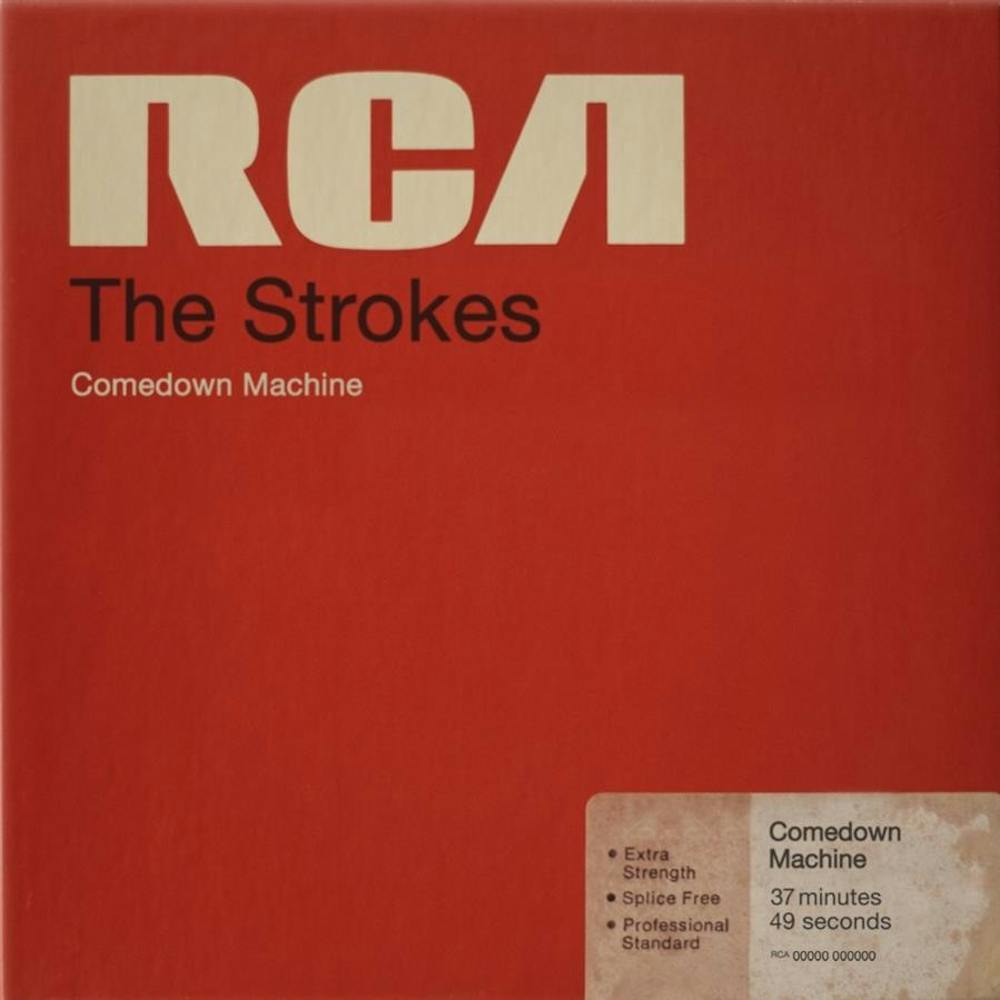After five years without a release, “Angles,” the polarizing fourth Strokes album, received undeserved hype that led to disappointment for some.
During the album’s production, fans read stories telling of the lack of frontman Julian Casablancas’ involvement as he opted to lay down vocals later and give the rest of the quintet more creative license. The resulting album lacked consistency as the band seemingly got back into the groove of being a band.
The Strokes’ fifth album, “Comedown Machine,” serves as the response to 2010’s let-down, returning with musical cohesion that implies the band wiped off the drool and got down to business.
The first track to be released, “One Way Trigger,” sounds like a Casablancas production, but the point of the song is lost to a belligerent Casio keyboard. The other single, “All the Time,” is a nod to the Strokes’ signature style — single-chord guitar harmonies, a booming chorus and a rudimentary, crowd-pleasing solo. The track is unrepresentative of the remainder of the album but will feel right to Strokes traditionalists.
In some instances, like “50/50,” the band stretches its punk legs complete with abrasive vocals and driving guitar work. As usual, human metronome Fabrizio Moretti remains the band’s backbone, leaving the spotlight for Nic Valensi and Albert Hammond.
The album lacks lyrical heavy lifting that Casablancas makes up for by showcasing his vocal prowess, particularly in the last three tracks. With “Chances,” Casablancas exercises his falsetto, transitioning easily to his signature, gritty sound.
For “Happy Ending,” the band once again creates a shimmery, electrifying sound, but unlike the incomplete feel of “One Way Trigger,” the track is well-mixed and intense. It’s The Strokes at their best.
The song would be a nice end cap in the custom of a 10-song Strokes album, but instead “Comedown Machine” tapers off with the ephemeral “Call it Fate, Call it Karma.” What initially sounds like an afterthought unfolds into a mesmerizing outro.
Given the band’s interpersonal cooperation, this recipe for songwriting would be a good direction for future albums. For a band that notoriously hates trying too hard, the album took more effort than its predecessor but is at its coolest when it’s at its most relaxed.
BY Rachel Trees
Strokes come down soft

Get stories like this in your inbox
Subscribe





